ENGAGEMENT REPORT 2H21
Proxy Voting
Following the update of our Proxy Voting Policy, in 2H21 we participated in 78 meetings; We cast at least one vote against management in 23% of these meetings. We also voted for a shareholder resolution at the AGM of South32, which aimed to ensure climate-related lobbying by industry associations supported by the company were consistent with the goals of the Paris Agreement.
In the coming year we expect more shareholder resolutions to be announced on transition plans, climate-related lobbying, board oversight and disclosure of climate risks. Polunin remains committed to including climate action considerations in our proxy voting and holding board members accountable.
Engagement
Collective engagement: As part of our collaboration with the Workforce Disclosure Initiative (“WDI”), we have encouraged our investees to participate in the 2021 WDI survey. Unfortunately, Gazprom and Thai Oil have declined to participate due to the low uptake in the oil and gas sector. We have met with South32 to discuss why they have declined to participate in 2021, despite reporting in 2020 and 2019. The company acknowledges the usefulness of the WDI; however, this year it communicated that its focus is on improving internal disclosures and that going forward their plan is to participate in the WDI survey once every two years owing to the time commitment involved. We have reflected these comments to the WDI.
Working with the WDI has helped us understand that whilst policy commitment on particular social issues is a good proxy for a company’s awareness of the matter, emerging market companies have a long way to go in disclosing processes and outcomes. As these companies often operate in regions with supply chain human rights risks, as well as diversity and pay-gap issues that are increasingly highlighted in the press, we will continue to raise awareness of the importance of social disclosures with investees.
Along with other signatories to CA100+ we met with Korea Electric Power Corp. (“Kepco”). Despite Kepco’s stated commitment to carbon neutrality and the phasing out of coal by 2050; and its October 2020 declaration that it would embark upon no new coal-fired projects overseas, its Indonesian and Vietnamese coal-fired projects have proceeded without any documented conversion plans. Moreover, the company faces domestic policy obstacles to achieve net zero, as the current tariff regime in South Korea does not cover coal exit costs, nor guarantee returns on renewable projects. Furthermore, the law that allows Kepco to directly participate in renewable projects has not been approved, so the company can only invest via special purpose vehicles.
To express our support of climate policies, we elected to be a co-signatory of the investor letter to the Presidential Committee on Carbon Neutrality in South Korea, requesting a fully aligned decarbonisation pathway to net zero by 2050. As we await the results of the Korean elections in March 2022, we hope that supportive measures for renewable investments and electricity tariffs are forthcoming to facilitate Korea’s energy transition.
Coal Exit: During 2H21 we held meetings with Tauron Polska and Banpu. Subsequently, Polunin wrote to Banpu urging the company to adopt a clear Paris-aligned coal exit plan, and we also had a detailed discussion with the CEO on their transition plans, capital expenditure alignment, Just Transition, and stranded asset risk. We applaud the company’s public statement on no new coal assets, and commitment to renewables and carbon reduction technologies, and we hope to see notable progress against these objectives during 2022.
In our initial meeting with Tauron Polska we discussed their coal exit plans, which involve the creation of a national energy agency in Poland (“NABE”), who will own all the lignite mines, hard coal and lignite-fired generation assets in Poland; The NABE plans are still under development and pending EU approval. We will continue to engage with our Polish utility holdings to monitor progress.
Restricted entities: Since establishing our Responsible Investment Policy, we have continued to engage with four portfolio holdings flagged for failures to respect the minimum standards of business practice based on international norms.
In one case, Companhia Energetica de Minas Gerais (“CEMIG”), we have removed the company from the restricted list. This is due to disclosure that the mitigation and compensation measures it has implemented have been considered adequate by IBAMA (Brazilian Institute of Environment and Renewable Natural Resources).
We did not witness the same level of progress being made by the other three companies with flagged failures, and as a direct result of this we divested from the following three companies during 2H21:
- Bharat Heavy Electricals, the contractor of a generation project in the proximity of the Sundarbans, a designated UNESCO World Heritage Site in Danger. Following demands from UNESCO, the Bangladeshi government has issued a Strategic Environmental Assessment. With the World Heritage Committee review cycle being annual and no decision being announced, to comply with our policies we disinvested following 9 months of inactivity.
- Elsewedy, an Egyptian contractor is involved in a Tanzanian hydropower project expected to impact the neighbouring UNESCO World Heritage site of the Selous Game Reserve. The company requested a non-disclosure agreement (“NDA”) in order to provide us with its remediation report. Given the limitations imposed by an NDA, the offer of information was not felt to be equal and open and as such was treated in the same way as non- disclosure.
- Kepco disclosed the remedial action it took in respect of its Laos hydroelectric power plant dam breach. However, the remedial measures outlined within its disclosures have not been endorsed by stakeholder reports. Unable to substantiate Kepco’s remediation claims, nine months after our engagement began Polunin divested this position.
